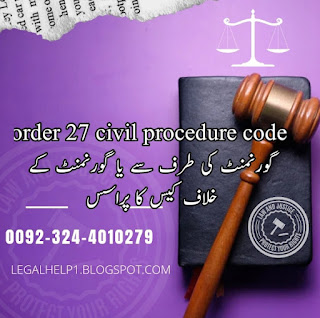Order 28 civil procedure code

Order 28 civil procedure code ORDER XXVIII SUITS BY OR AGAINST MILITARY [OR NAVAL]MEN [OR AIRMEN] 1. - (1) Where any officer, [soldier, sailor or airman] actually [in the service of the State] in [such] capacity is a party to a suit, and cannot obtain leave of absence for the purpose of prosecuting or defending the suit in person, he may authorise any person to sue or defend in his stead. (2) The authority shall be in writing and shall be signed by the officer, [soldier, sailor or airman] in the presence of (a) his commanding officer, or he next subordinate officer, if the party is himself the commanding officer, or (b) where the officer, [soldier, sailor or airman] is serving in military [naval] [or air force] staff employment, the head or other superior officer of the office in which he is employed. Such commanding or other officer shall counter sign the authority which shall be filed in Court. (3) When so filed the countersignatur...
